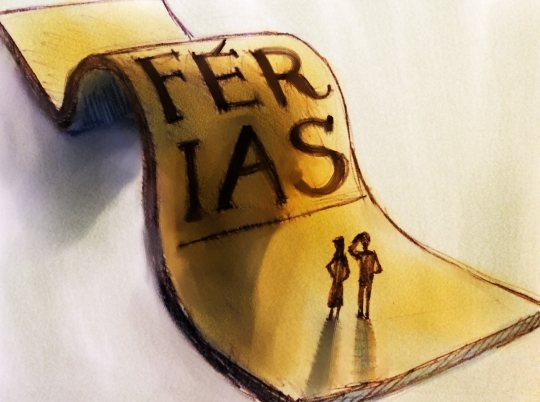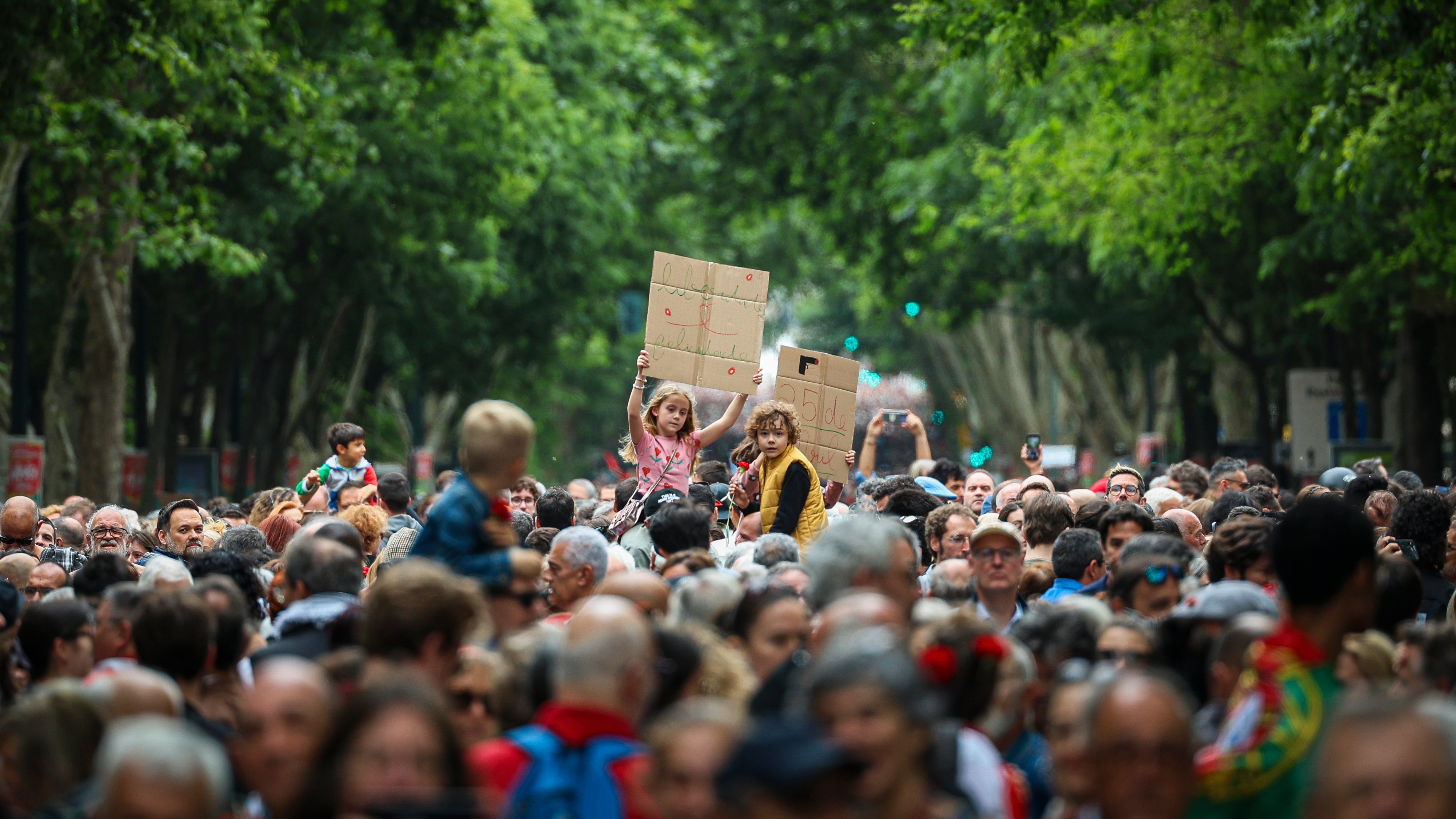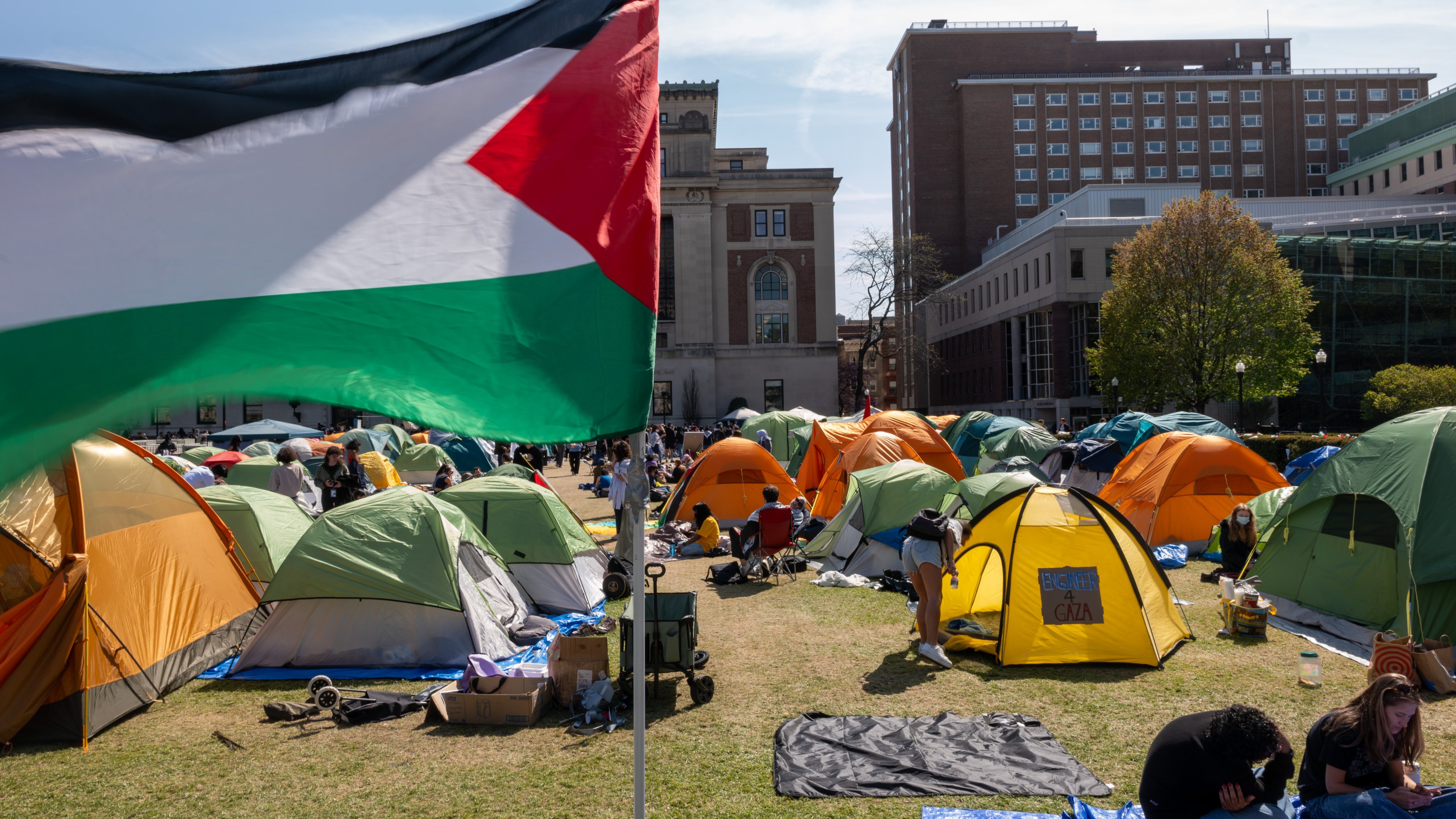O tédio é uma das melhores coisas que podemos oferecer aos nossos filhos. É quando estão imbuídos de uma dose suficiente de tédio, que eles podem descobrir por eles próprios que têm de fazer coisas, e nesse processo vão descobrindo quem são. As férias do verão são particularmente aptas para suscitar o tédio. Com o tédio, há crianças que percebem que precisam de encher o vácuo. Outras, que gostam do vácuo.
Lembro-me que as seis semanas de férias que tínhamos na Inglaterra eram um grande luxo para não fazer nada e, dentro da minha cabeça, as seis semanas ocupavam mais de metade do ano. Éramos deixados à vontade durante a maior parte do tempo, com a porta aberta para fazermos o que pudéssemos com o que tínhamos. Eu ficava feliz por fazer praticamente zero durante as férias todas. Pelo meio, havia (ou não) quinze dias de férias em família. O resto do tempo servia apenas para nós simplesmente existirmos. Ver os poucos canais de TV, escavar buracos no quintal, olhar para o céu, desenhar, sentarmo-nos num muro. Não fazer nada, deliciosamente sem fim.
Não ter nada para fazer é óptimo. Não ter nada para fazer durante umas semanas é óptimo. Não ter nada para fazer durante três meses, porém, é um bocadinho exagerado.
Quando, há uns anos, o primeiro ano letivo da minha filha mais velha acabou em meados de Junho, fui apanhada de surpresa. O quê? Não há aulas em Julho? O quê? Não há mais aulas até meados de Setembro? O QUÊ?
As férias de verão em Portugal coincidem com os meses de mais calor. Mas doze (e este ano, treze) semanas de férias de verão é um bocado estranho. Para as crianças, as primeiras semanas de escola são um grande reajuste, pois já se esqueceram do que é ter aulas. E para nós, os pais?
Depois do Ministério da Educação ter proclamado que as escolas vão poder reiniciar o ano letivo só a partir do dia 21 de Setembro, porque não houve protestos? Não falo das crianças (obviamente), nem dos professores ou administradores das escolas, que ficaram com uma semana extra para se desenrascarem do caos anual dos horários e colocação de professores. Falo dos pais e avôs. Porque é que não se manifestaram?
Treze semanas de férias, num único bloco, é muito tempo.
São treze semanas de “estou aborrecido” ou “tenho fome” ou “quero…” Embora nos caiba como pais sugerir que puxem pela criatividade e encontrem algo para fazer, ou lembrar-lhes que almoçaram há meia hora — é chato. São treze semanas de interrupções constantes para os pais que trabalham em casa (ainda só passaram duas semanas das férias, e já estou a perder a minha paciência, mas isso é problema meu, não é o deles).
Mais importante, são treze semanas em que os pais que têm empregos têm de se desenrascar constantemente com o desafio do que fazer com os filhos. Nem todos têm avôs ou amigos que possam ou queiram ajudar. Nem todos têm meios para pagar ATL. Nem têm todos podem trabalhar em casa. E já passaram há muito tempo os dias em que as crianças podiam andar nas ruas, como fazíamos antigamente. Seja a ameaça verdadeira ou imaginada, as ruas já não são vistas como seguras, nem a casa, nem os vizinhos. Por isso, deixá-los em casa não é opção, pelo menos oficialmente. Conheço vários pais que tiveram de fazer isso com crianças de oito, nove, dez anos… Não tiveram alternativa.
Estas 13 semanas juntas com as outras fazem 18 semanas de férias este ano. Um terço do ano.
Todas as exigências do currículo têm de caber nas restantes 34 semanas, e é preciso ainda descontar 2 ou 3 semanas perdidas no início do ano letivo, enquanto as crianças se habituam às aulas, depois dos meses de não fazer nada. E durante um terço do ano, os pais que trabalham têm de encontrar onde pôr os filhos.
Não acho que crianças devam passar o seu tempo inteiro na escola (veja, acima, o que escrevi sobre o tédio). Gostava de ver o sistema inteiro de educação mudar e adaptar-se para o mundo moderno, mas mudar também naquilo que diz respeito ao modo como tratamos dos filhos enquanto os pais trabalham, e, já agora, organizar um sistema de férias que dê jeito a todos.
(traduzido do original inglês pela autora)
13 weeks of holiday: is it a good idea?
Boredom is one of the greatest gifts we can give to kids. If they get enough of it, they work out for themselves that they have to do something and discover who and what they are. Boredom is what summer holidays were made for. Boredom means that some kids discover that they need to find things to fill the void. Some just enjoy the void.
I remember that the 6 weeks we got in England were the most enormous luxury of nothingness and, in my mind’s eye, the 6 weeks took up more than half of the year. We were left to our own devices for most of the time, the door opened to the world and we did what we could with what we were given. I happily did absolutely nothing for the whole time. There might be a family holiday for a couple of weeks in there, or there might not, and the rest was just for existing. Watching the few TV channels, digging at things in the garden, staring at the sky, drawing, sitting on a wall. Endless blissful nothing.
Having nothing to do is great. Having nothing to do for several weeks is great. Having nothing to do for three months is a bit much, though. For the kids, the readjustment to going back to school in September is always a bit of a trial and it always takes a good couple of weeks to get back into the swing of things. And what of the rest of us?
When my eldest kid’s first year at primary school ended in the middle of June, I was taken by surprise. What, no school in July? What? No school till the middle of September? WHAT?
It’s understandable, historically, why Portugal had all of the hot summer months off, but 12 (and this year, 13) weeks of summer holidays is, in the 21st century, a bit mystifying.
After the ministry of education announced that schools could have another week at the end of the school holidays, why weren’t there any protests? Not protests by the kids (obviously), nor by the teachers and school administrators for whom that extra week will be invaluable for sorting out the utter chaos that is the perennial class scheduling and placement of teachers, but by parents and grandparents. Why wasn’t there a riot?
Thirteen weeks in one go is just…
Thirteen weeks of “I’m bored” or “I’m hungry” or “I want…” Although it’s our job as parents to creatively suggest that they find something to do or remind them that they just had lunch, it’s wearing. Thirteen weeks of constant interruptions to parents who work at home — two weeks into the holidays and my patience is already breaking, but that’s my problem to resolve, not theirs.
More importantly, thirteen weeks of parents who have jobs having to juggle and struggle with what to do with the kids while they work. Not everyone has grandparents or friends who can or will have the kids. Not everyone can afford ATL (child care for out of school hours). Not everyone can work from home. Long gone are the days when little kids could roam the streets like we could when we were small.
Whether the threat is real or imagined, the streets aren’t safe any more. Homes aren’t safe any more. Neighbours aren’t safe any more. So leaving them at home on their own isn’t an option, at least officially. I have known plenty of parents who have had to do just that with kids of 8, 9, 10… They had no other option.
These 13 weeks take the total of weeks off school to 18 weeks this year. One-third of the year.
That means all the demands of the curriculum to fit into just 34 weeks. It means 2 or 3 weeks at the beginning of the school year half wasted due to kids readjusting after three months of doing nothing. It means over one-third of the year when working parents have to find somewhere for their kids to go.
I don’t think that kids should spend their entire time in education. On the contrary, I think they should have many other experiences (eg. see “boredom” above). I wish that the whole education system was shaken up and adapted for the modern world, but that would need a huge shake up in how we deal with and look after kids while parents work, and manageable school holidays, manageable for everyone.














